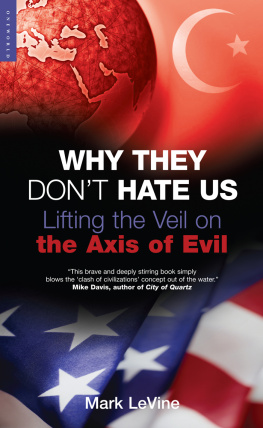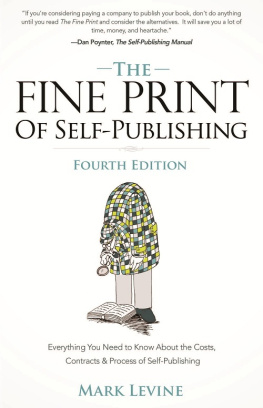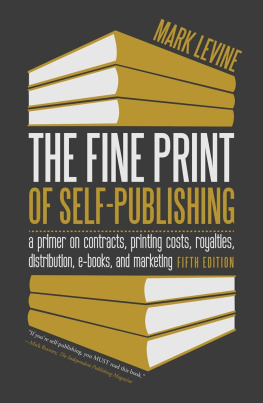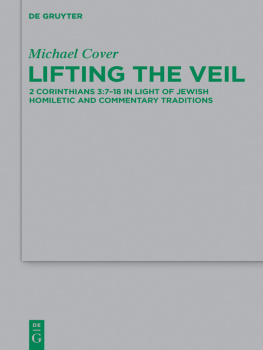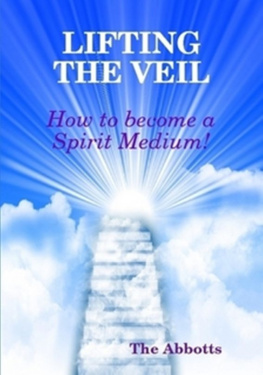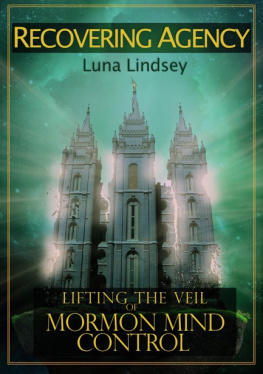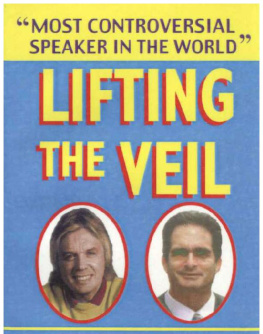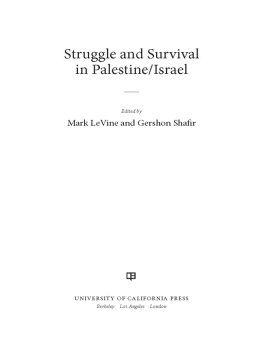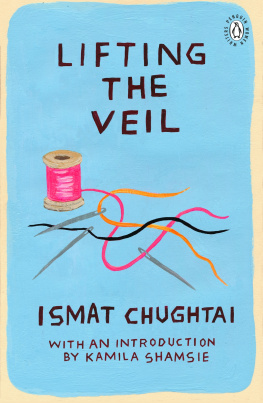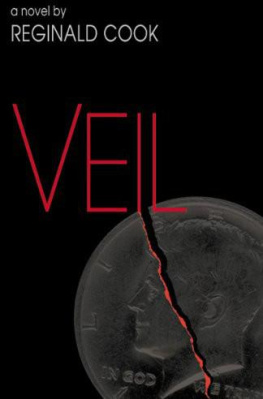Why They Dont Hate Us
RELATED TITLES PUBLISHED BY ONEWORLD
Anti-Capitalism: A Beginners Guide, Simon Tormey, ISBN 1851683429
Democracy: A Beginners Guide, David Beetham, ISBN 1851683631
Global Outrage, Peter N. Stearns, ISBN 185168364X
Global Terrorism: A Beginners Guide, Leonard Weinberg, ISBN 1851683585
NATO: A Beginners Guide, Jennifer Medcalf, ISBN 1851683534
The PalestineIsraeli Conflict: A Beginners Guide, Dan Cohn-Sherbok and Dawoud El-Alami, ISBN 1851683321
Political Philosophy: A Historical Introduction, Michael J. White, ISBN 1851683283
WHY THEY DONT HATE US
Oneworld Publications
10 Bloomsbury Road
London WC1B 3SR
England
www.oneworld-publications.com
This ebook edition published in 2013
Mark LeVine 2005
All rights reserved
Copyright under Berne Convention
A CIP record for this title is available
from the British Library
ISBN: 9781851685035
eISBN: 9781780744735
Cover design by Mungo Designs
Typeset by Saxon Graphics Ltd, Derby
Cover photographs Corbis/Cadmium
Photograph on p. 275 courtesy of Andrew Stern
Stay up to date with the latest books,
special offers, and exclusive content from
Oneworld with our monthly newsletter
Sign up on our website
www.oneworld-publications.com
With love and hopePreface
As I write these lines nuclear experts are betting that Muslim terrorists will detonate a thermonuclear bomb in a major American city before the end of this decade. George W. Bush polls lower than Osama bin Laden in much of the world, especially in the so-called Global South (what used to be referred to as the Third World or Developing World). Despite relatively successful elections and subsequent pro-democracy protests across the region, the US occupation of Iraq and the Israeli Occupation of Palestinian territories, which most of the world believes the US sanctions, have eroded Americas global standing to an all-time low. A clash of fundamentalisms dominates the world stage, while a still inchoate global Left struggles to carve out space between the two extremes. As Im digesting the news of impending Armageddon, the BBC News shows images of 30,000 protesters including a couple of Chilean secret service agents vociferously denouncing President Bushs policies at the annual APEC summit in that country.
Pages more of examples could be provided from yesterdays or tomorrows news, but the story theyd tell would differ only in detail, not in substance or theme. The reality is that much if not most of the population of the world is angry at the United States and its economic, cultural, and geostrategic policies. It has got to the point that a book entitled Why Do People Hate America has become an international bestseller (or so its cover claims). Although I have not seen much evidence of it in my regular trips to Europe and the Muslim world, people tell me that theyve never seen these regions as rife with anti-American sentiment as they are today.
Given the seeming endless supply of anger and even hatred across the globe which, depending on whom you read, is either sometimes, often, or exclusively directed at the United States it might seem strange to title a book Why They Dont Hate Us; but that is just what this book will argue. Indeed, not only am I firmly convinced that most of them dont hate most of us, Im equally convinced that the very idea that there is an us and a them is part of the problem that leads people to think that we and they cant get along. At least in the Middle East, North Africa, and Europe, the parts of the world I know best, the number of ways people define themselves, their cultural identities and attitudes, are too complex and varied to be subsumed under any one they. (And if the pundits take on the 2004 US Presidential election is to be believed, there are at least two wes populating the United States, and most likely a whole lot more.)
Moreover, I have rarely witnessed most of the various theys of the Muslim world (or old Europe for that matter) irrationally hating or uncritically denouncing the United States. Instead, as I will show in the pages that follow, the vast majority of the worlds Muslims have a fairly accurate understanding of the political, economic, and cultural impact of American/Western policies that today fall under the rubric of globalization. Certainly, the average Muslim is better informed about the United States or Europe than the average American is about Arab/Muslim, or even European, cultures and societies. To the extent that Muslims are critical of the United States or the larger West (which today would more appropriately be called the Global North), their reasons are as often as not quite rational as the Pentagons Defense Science Board put it, they do not hate our freedom, they hate our policies and depending on the issue are likely to be shared by Americans on the Left or Right.
Yet despite the extent and often severity of the criticism, we should not be surprised that most Muslims want to engage with American and Western/Northern cultures where, after all, millions of them live as long as they can do so with some measure of cultural confidence and autonomy, and can at the same time participate in the globalized economy on terms that enhance rather than harm their economic well-being and life chances. In these sentiments they are joined by the vast majority of Europeans (old and new), South Americans, Africans, and other citizens of the so-called Rest of the world, who, as I show throughout this book, have many good reasons to be extremely upset about the policies of the United States and its allies, and the world they are creating.
Because of these sentiments, most Muslims have as little use or sympathy for terrorists as does the average American. Whether in Cairo or Karachi, Jakarta or Jenin, most citizens of the Muslim world, like their counterparts across the Global South, would much rather find ways to work with the citizens of the Global North to change these dynamics than struggle against them in some zero-sum contest for world supremacy or worse, survival.
These comments should not be taken to suggest that alls well with the rest of the world, and the Muslim world specifically. There is overwhelming evidence that the majority of Muslim countries are poorer, less democratic, and more riven by internal and external conflicts than almost any other world region besides sub-Saharan Africa. Crucially, however, the sources of these problems dont lie in what went wrong with Islam, or in its supposed isolation from the unfolding of freedom, democracy, and Enlightenment of the last four centuries (as claimed by experts as diverse as Bernard Lewis and Irshad Manji). Rather, they will be found in the economic, political, and cultural structures of the world system as it evolved during the modern era, a system that has produced dysfunctional societies across the globe, and for whose problems the West bears at least as much responsibility as does Islam.
Indeed, as I show throughout this book, almost every pathology we can find in the Muslim world from hate-filled ultra-conservative religious beliefs, to a glorification of violence, to faith-based, passive and depoliticized consumerism has its counterpart in the Global North, and particularly in the United States. The difference is that while we are rich and powerful enough to binge, bully or bomb our way through the crises caused by our various disorders, they rarely have the luxury of such responses.


